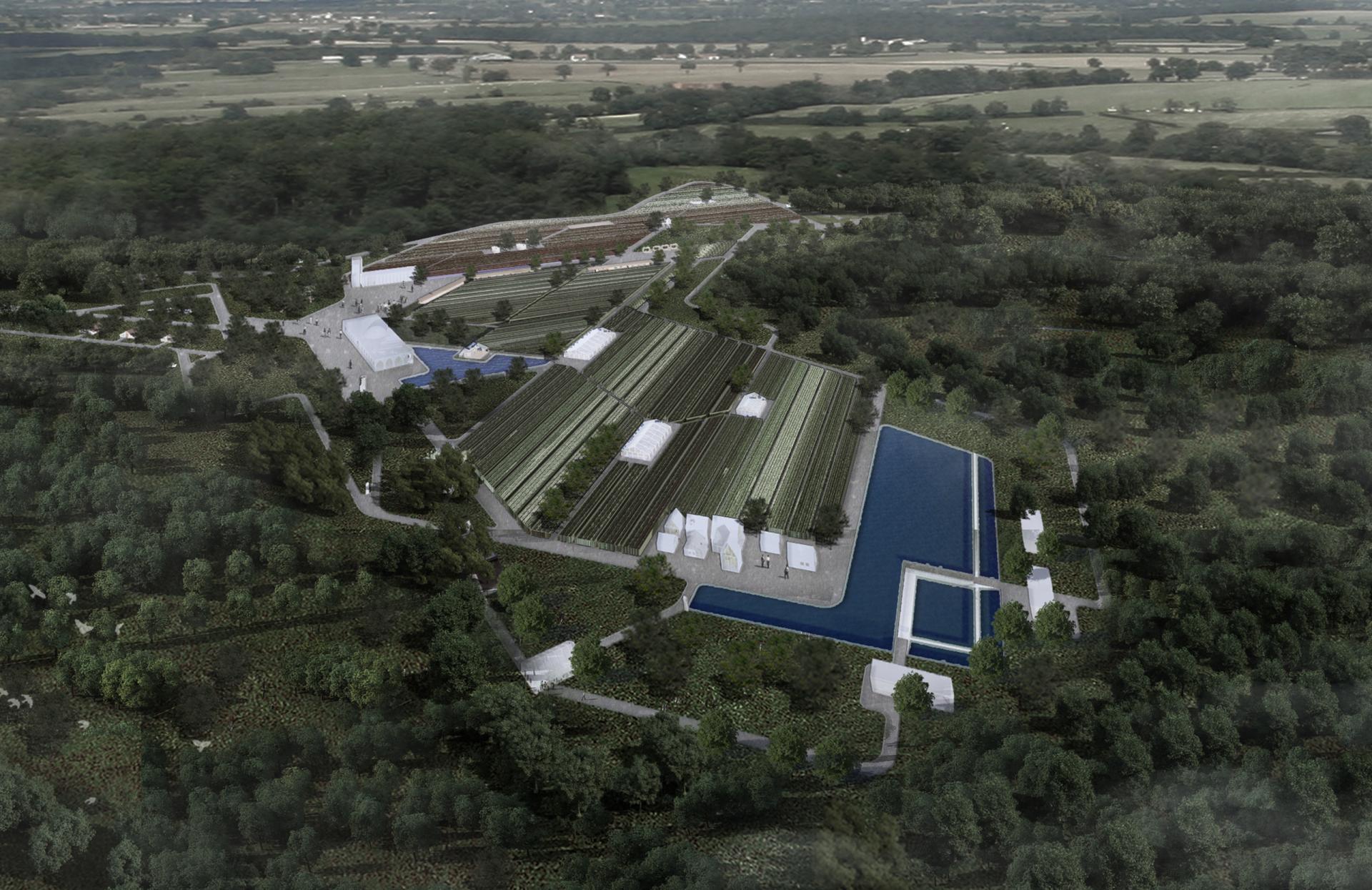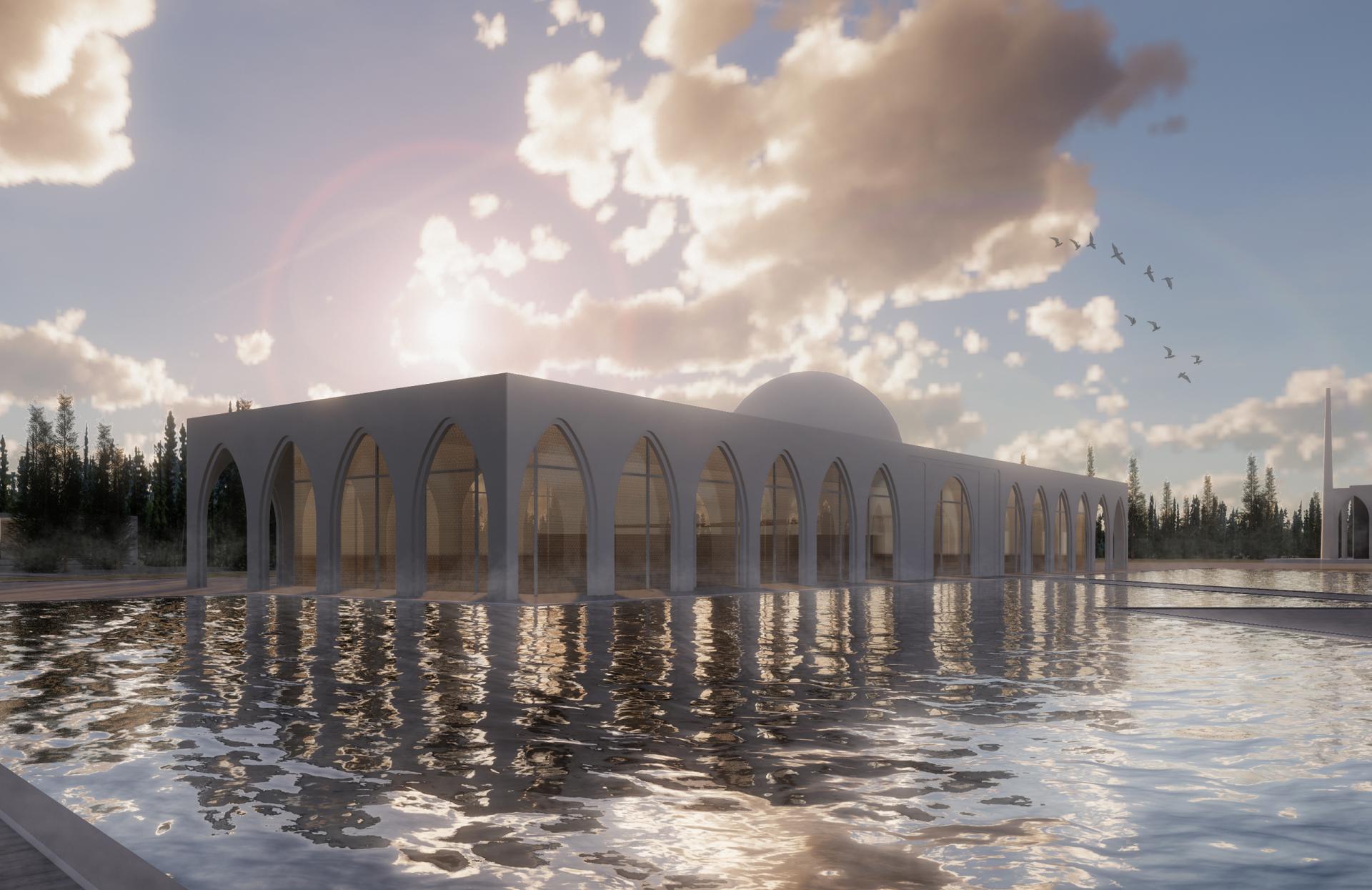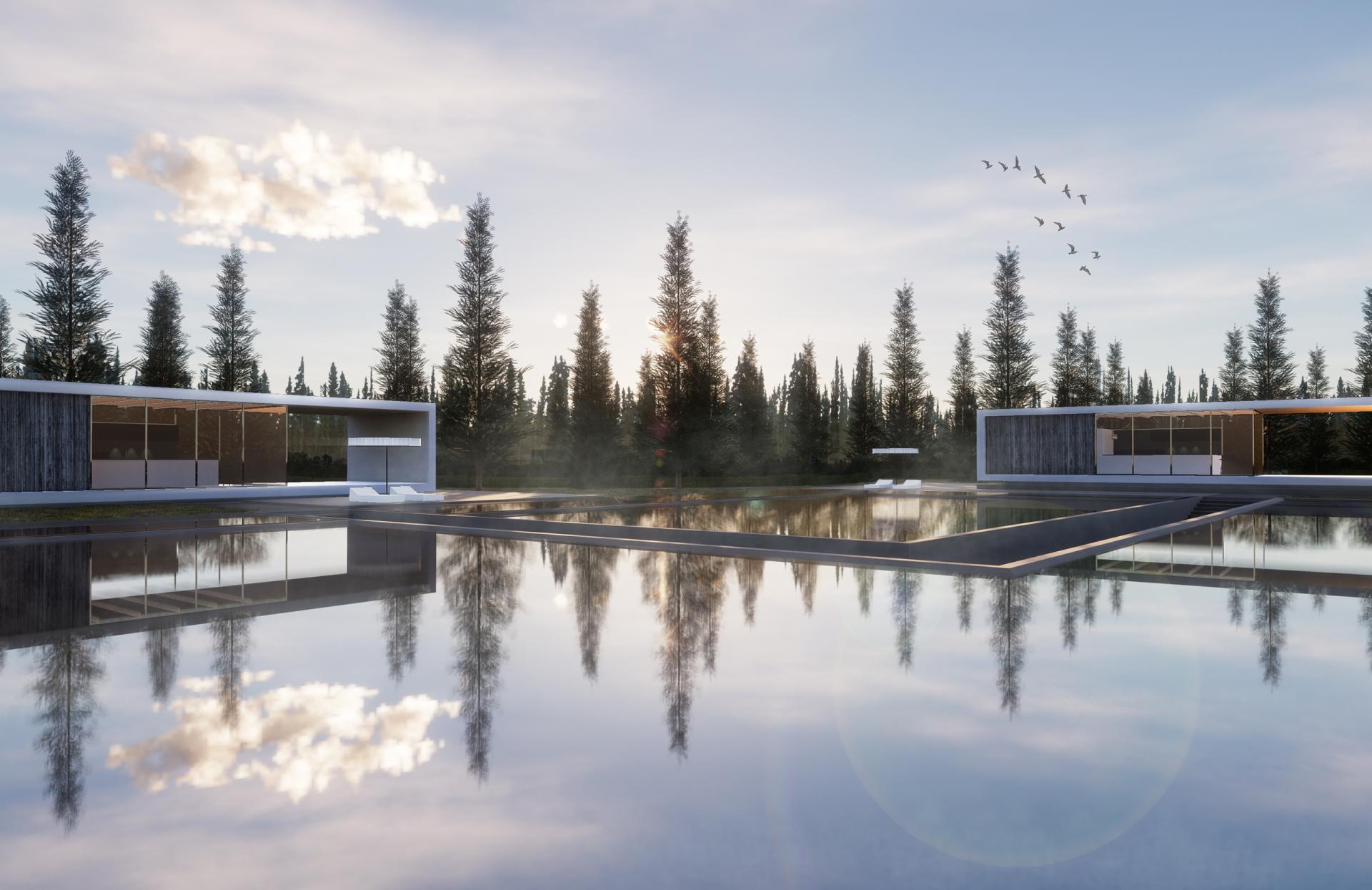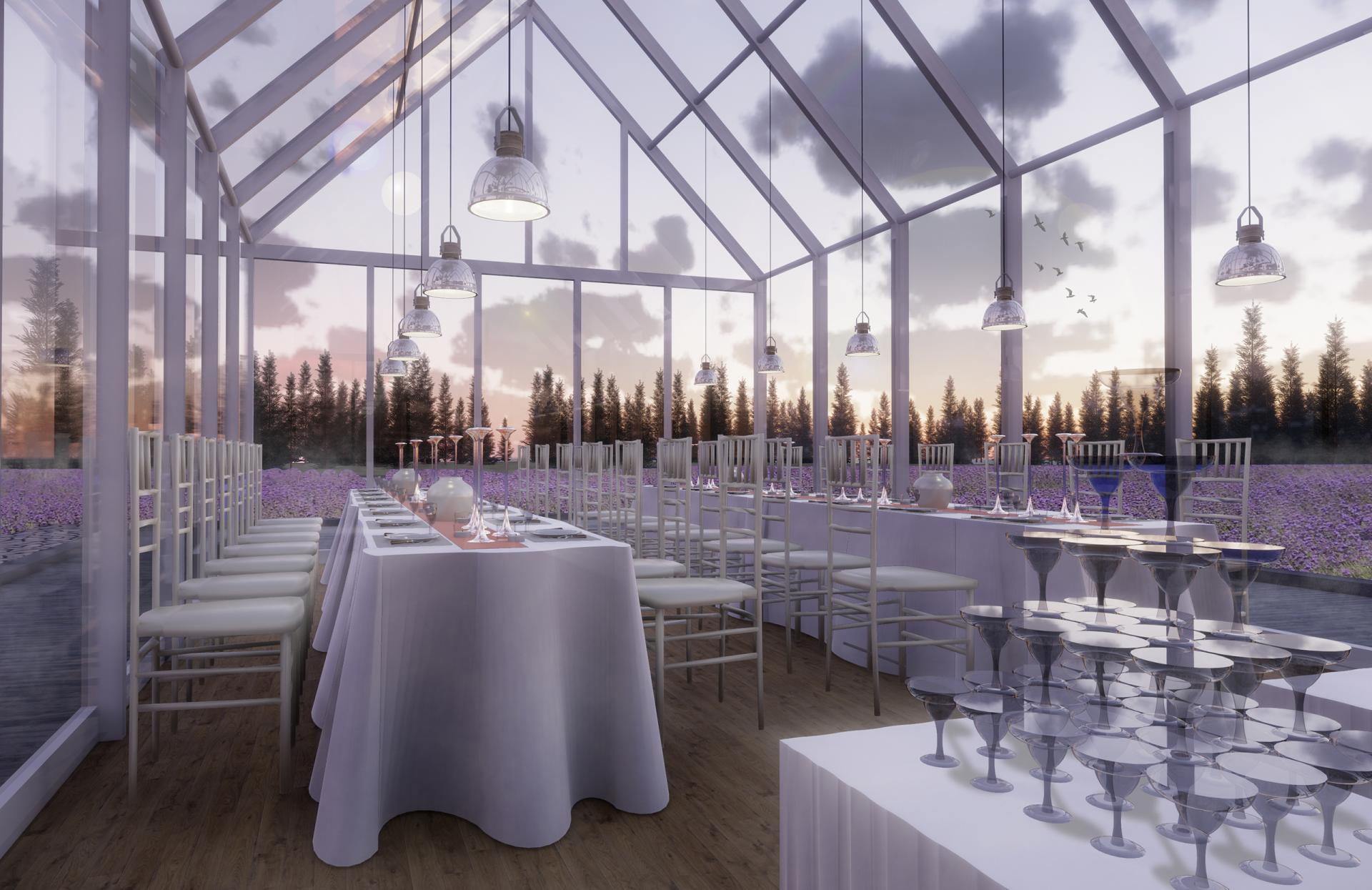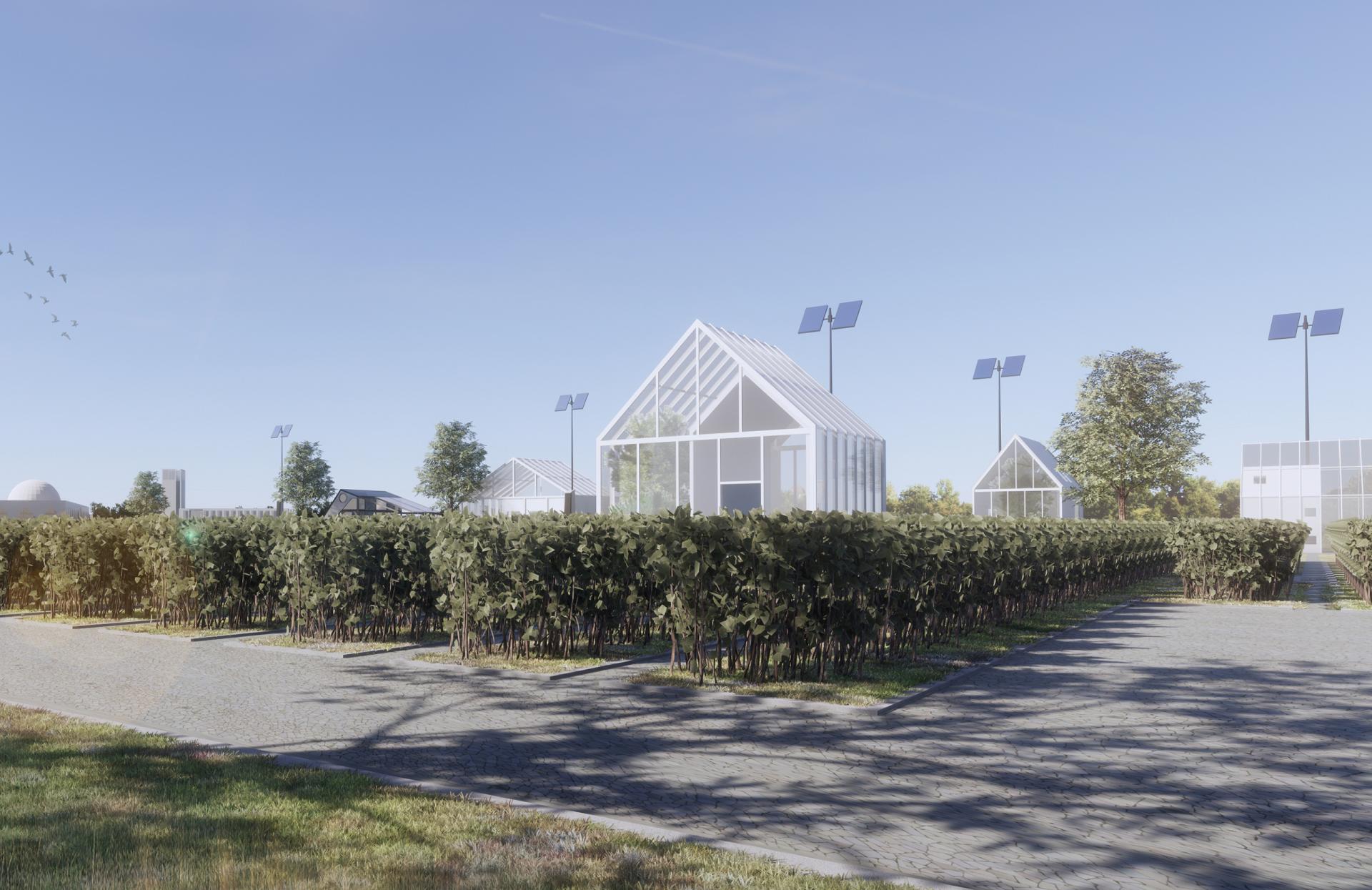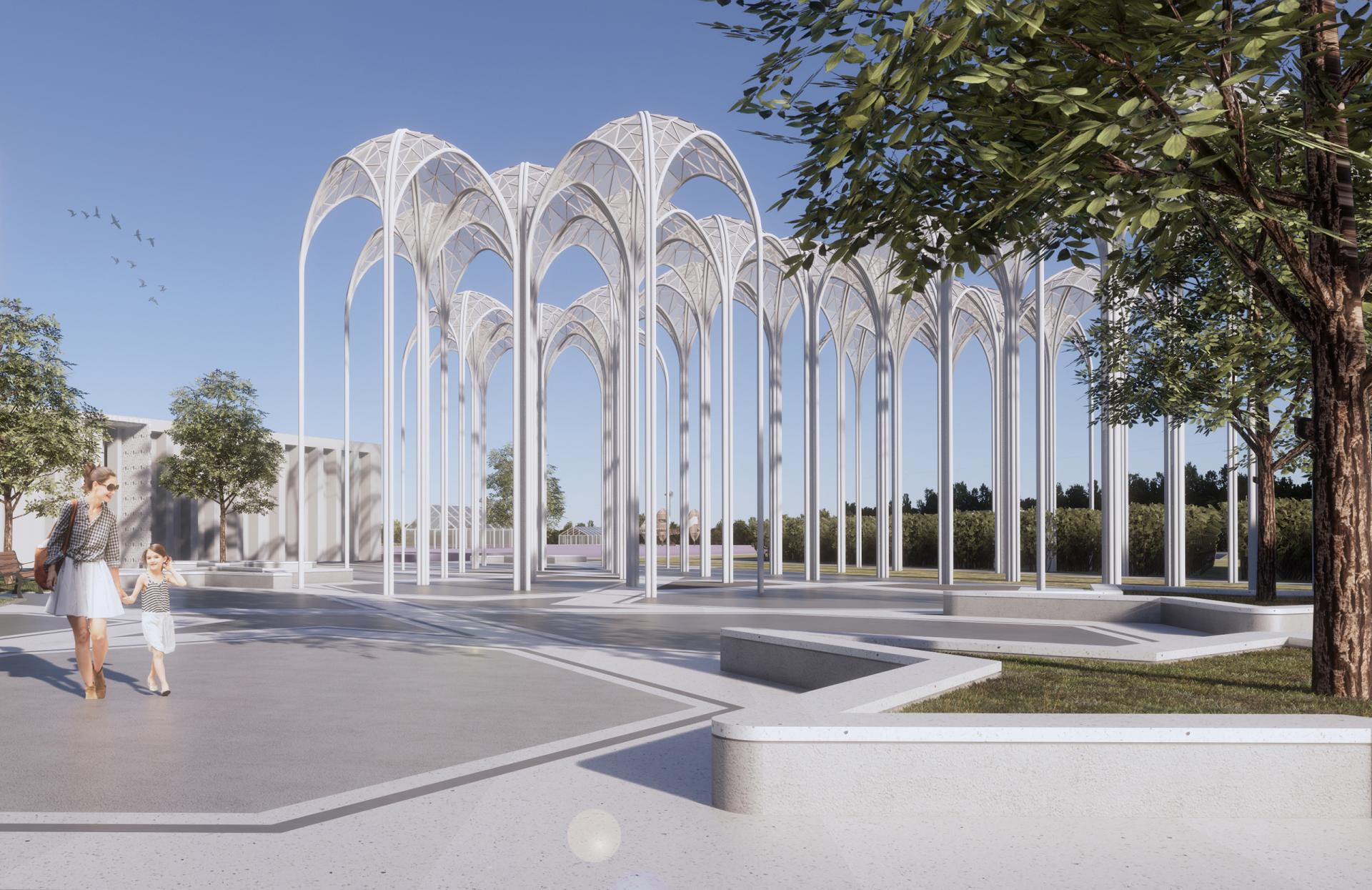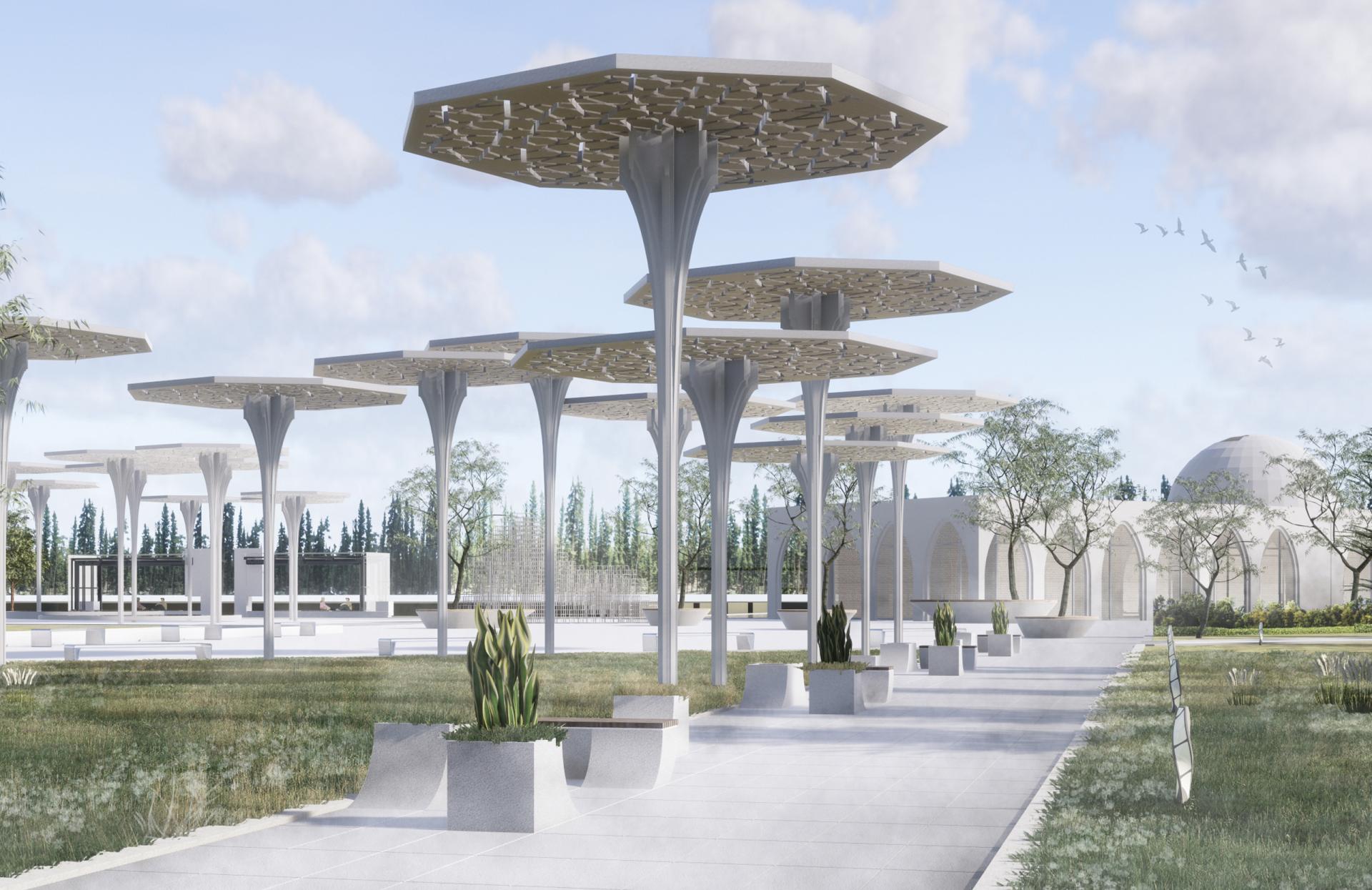2025 | Professional

Silk Road Flower Dance – Pearl of the Western Regions
Entrant Company
School of Art and Design, Chongqing College of International Business and Economics
Category
Landscape Design - Large-Scale Landscape Project
Client's Name
Wang Ze
Country / Region
China
“Silk Road Flower Dance – Pearl of the Western Regions” is more than just a park—it is a sanctuary for the spirit of Northern Xinjiang. Rooted in the principles of critical regionalism, the design rejects superficial ornamentation and instead reconstructs the spatial DNA of the region—its natural and cultural resources—to create an immersive narrative. Islamic geometric patterns weave through courtyards and façades; the Tianshan Mountain ecosystem is echoed in a green network composed of native plants; vernacular textures are embedded in the paving and landscape walls. This design does not merely “look like Northern Xinjiang”—it feels like it, forging a deep cultural resonance between people and place. The “fragrance economy belt” is both poetic and pragmatic. Scent becomes a design medium and an economic driver, woven through four thematic zones: Wine Node: A functioning vineyard and wine museum celebrate Xinjiang’s viticultural heritage while offering boutique tasting experiences. Forest Node: Dense spruce woods house eco-lodges and outdoor saunas, providing all-season wellness and leisure. Lavender Node: Vast purple fields host festivals, scent workshops, and artisanal markets. Orchard Node: Interactive fruit-picking, jam-making, and farm meals reconnect visitors with seasonal rhythms. This system responds to Urumqi’s harsh seasonality by distributing diverse, climate-adaptive programs across time and space. The result is a scent-driven tourism ecosystem where nature, culture, and commerce converge. Respecting the fragile balance between conservation and development, the design adopts a three-tiered ecological zoning strategy: Core Conservation Zones strictly protect sensitive ecosystems, limiting access to monitoring and research. Buffer Zones allow controlled public engagement through eco-education and interpretive trails. Open Zones support tourism, festivals, and recreation, using native plants to minimize ecological disruption. Windbreak forests, salt-tolerant ground cover, and rainwater wetlands are not just green backdrops—they actively regulate temperature, prevent erosion, and filter runoff. This multi-layered system transforms the landscape into an adaptive infrastructure that enhances environmental resilience while maintaining scenic value. The design orchestrates an emotional choreography through the six senses and five emotional triggers. Visual drama unfolds in seasonal contrasts—lavender seas in summer, snowy spruce silhouettes in winter. Tactile variety invites interaction: rough stone walls, woven baskets, polished wood.
Credits

Entrant Company
Devin
Category
Product Design - Textiles / Floor Coverings

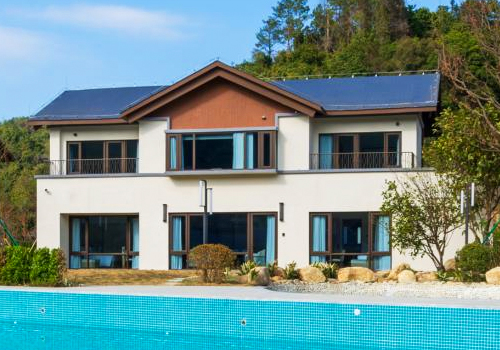
Entrant Company
Zhuhai Weiye Meihua Architects Co., Ltd.
Category
Architectural Design - Hotels & Resorts


Entrant Company
Guangdong Voion Eco Packaging Industrial Co., Ltd.
Category
Packaging Design - Animals & Pets


Entrant Company
Chenjia Ren
Category
Conceptual Design - Student Design

